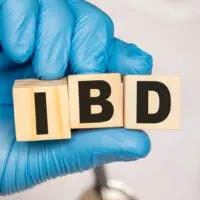Inflammatory Bowel Disease (IBD) has long puzzled both sufferers and medical professionals alike. Affecting nearly half a million people in the UK alone, IBD brings with it a host of debilitating symptoms that can significantly impact daily life. But recent developments may finally shed light on this mysterious condition. Scientists in the UK have made a groundbreaking discovery that could revolutionize how we understand and treat IBD.
What if the key to effective treatments has been hiding in plain sight all along? As researchers uncover the genetic roots of this disease, we stand on the brink of a potential breakthrough in managing and possibly even reversing IBD. Read on to discover how this revelation could change the lives of those affected by this chronic illness.
Understanding Inflammatory Bowel Disease

Inflammatory Bowel Disease (IBD) is an umbrella term that primarily includes Crohn’s disease and ulcerative colitis. These conditions are characterized by chronic inflammation of the gastrointestinal (GI) tract, leading to a range of uncomfortable and often debilitating symptoms. Common signs of IBD include persistent diarrhea, severe stomach pain or cramps, blood in the stool, fatigue, and significant weight loss without any clear cause.
Unlike Irritable Bowel Syndrome (IBS), which shares some symptoms, IBD causes actual inflammation in the bowel tissues. This inflammation can lead to long-term damage and complications if not properly managed. The chronic nature of IBD means that those affected often face lifelong challenges in maintaining their health and quality of life.
Understanding these distinctions is crucial for accurate diagnosis and effective treatment. While the exact cause of IBD has been unclear for many years, recent scientific advances are starting to unravel the mystery, offering new hope for those living with this condition.
The Breakthrough Discovery
Researchers at the Francis Crick Institute and University College London have made a significant breakthrough that could change the future of Inflammatory Bowel Disease (IBD) treatment. For years, the exact cause of IBD remained elusive, leaving sufferers with limited treatment options and no clear path to recovery. However, this recent discovery has identified a crucial weak spot in the DNA of individuals with IBD, which is present in a staggering 95% of cases.
The team of scientists, led by Dr. James Lee, stumbled upon this groundbreaking finding while investigating a section of DNA on chromosome 21, known as a ‘gene desert.’ This area does not code for proteins but has been linked to several health problems, including autoimmune diseases like IBD. They discovered that a specific part of this DNA, called an ‘enhancer,’ functions like a volume control for nearby genes.
In immune cells known as macrophages, this enhancer amplifies a gene called ETS2, which significantly increases the risk of developing IBD. Macrophages, which flood the intestines and release inflammation-triggering chemicals, have now been identified as central players in the development of IBD. This discovery not only uncovers a major piece of the puzzle but also opens the door to new treatment possibilities.
The Role of DNA and Genes in IBD
The discovery of the ‘gene desert’ on chromosome 21 has provided invaluable insight into the genetic mechanisms behind Inflammatory Bowel Disease (IBD). This specific region of DNA, which doesn’t code for proteins, has been a focus of interest due to its association with various autoimmune diseases, including IBD.
At the heart of this discovery is the ‘enhancer’ section of DNA. Enhancers are like genetic amplifiers; they increase the activity of certain genes. In this case, the enhancer in question affects immune cells called macrophages. These cells are crucial for our body’s defense mechanisms, but in the case of IBD, they go awry.
The enhancer amplifies the ETS2 gene within macrophages. This overactivity leads to the excessive production of cytokines, chemicals that trigger inflammation. In the context of IBD, macrophages flood the lining of the intestines, releasing these cytokines and causing chronic inflammation. This sustained inflammation is what makes IBD so debilitating.
Dr. James Lee and his team have shown that this enhancer acts as a ‘master regulator’ of inflammation in IBD. Understanding this regulatory mechanism is a huge leap forward. It provides a clear target for new treatments, aiming to reduce or even eliminate the excessive inflammatory response in IBD patients.
Implications for Treatment

The identification of the enhancer and its role in inflammatory bowel disease (IBD) has significant implications for treatment. This breakthrough suggests that the key to managing IBD more effectively may lie in targeting this specific genetic pathway.
Researchers found that drugs already approved for other conditions, such as certain cancers, could be repurposed to address the inflammation caused by the enhancer. These drugs can potentially reduce the activity of the ETS2 gene in macrophages, thereby decreasing the excessive inflammation that characterizes IBD.
However, while the existing drugs show promise, they need to be precisely tailored to target macrophages effectively without affecting other cells. This fine-tuning is essential to maximize therapeutic benefits while minimizing potential side effects.
Dr. James Lee and his team are optimistic that human trials could begin within the next five years. If successful, these trials could lead to new treatment protocols that offer relief to millions of IBD sufferers. This development represents a hopeful future where managing IBD could become significantly more effective and personalized.
Personal Stories and Impact
The discovery of the genetic basis for inflammatory bowel disease (IBD) has brought a renewed sense of hope to many individuals who struggle daily with this debilitating condition. Personal stories highlight the profound impact this breakthrough could have on real lives, offering a glimpse into the challenges faced by those with IBD and the potential for a brighter future.
Lauren Golightly’s Journey

Lauren Golightly, a 27-year-old who was diagnosed with Crohn’s disease in 2018, has experienced the harsh realities of living with IBD. “Crohn’s has had a huge impact on my life,” Lauren shares. “I’ve had a rocky road since diagnosis, with many hospital admissions, several different medications, and even surgery to have a temporary stoma bag.”
For Lauren, one of the hardest aspects of having IBD is the uncertainty. “I still experience flare-ups and can still spend quite a bit of time in hospital,” she explains. “Learning about this research is so exciting and encouraging. I am hopeful this could potentially make a difference for myself and so many other hundreds of thousands of people living with IBD.”
Living with IBD: Tips and Strategies
Living with Inflammatory Bowel Disease (IBD) can be challenging, but there are several strategies that can help manage symptoms and improve quality of life. Here are some practical tips:
Diet and Nutrition
- Eat a Balanced Diet: Focus on a well-rounded diet that includes a variety of fruits, vegetables, lean proteins, and whole grains. Avoid spicy foods that trigger flare-ups.
- Stay Hydrated: Drink plenty of water throughout the day to stay hydrated, especially during flare-ups when diarrhea can lead to dehydration.
- Consider Probiotics: Some studies suggest that probiotics may help maintain gut health. Consult your doctor before adding them to your diet.
Stress Management
- Practice Mindfulness: Techniques such as meditation, deep breathing exercises, and yoga can help manage stress, which is known to exacerbate IBD symptoms.
- Seek Support: Joining a support group or talking to a therapist can provide emotional relief and coping strategies.
Exercise and Physical Activity
- Regular Exercise: Engage in regular physical activity, such as walking, swimming, or gentle yoga. Exercise can improve overall health and reduce stress levels.
- Listen to Your Body: During flare-ups, it’s important to rest and not push yourself too hard.
Regular Medical Checkups
- Routine Monitoring: Regular checkups with your gastroenterologist can help manage the disease and adjust treatment plans as needed.
- Stay Informed: Keep up to date with the latest research and treatment options to discuss with your healthcare provider.
By incorporating these strategies into your daily routine, you can better manage IBD and maintain a healthier lifestyle.
Looking Ahead: Hope and Optimism for IBD Sufferers
The recent discovery by scientists at the Francis Crick Institute and University College London marks a significant breakthrough in understanding and potentially treating Inflammatory Bowel Disease (IBD). By pinpointing a specific genetic enhancer that plays a crucial role in the disease’s development, researchers have opened new avenues for targeted treatments that could significantly improve the lives of IBD sufferers.
While the path to clinical application may take a few years, the promise of more effective and personalized treatments offers hope for those living with this chronic condition. As science continues to uncover the complexities of IBD, staying informed and proactive in managing symptoms is essential.
In the meantime, practical strategies such as maintaining a balanced diet, managing stress, staying active, and seeking regular medical advice can help manage IBD symptoms and enhance overall well-being. With ongoing research and advancements, the future looks brighter for those affected by IBD, bringing us closer to more effective solutions and a better quality of life.



